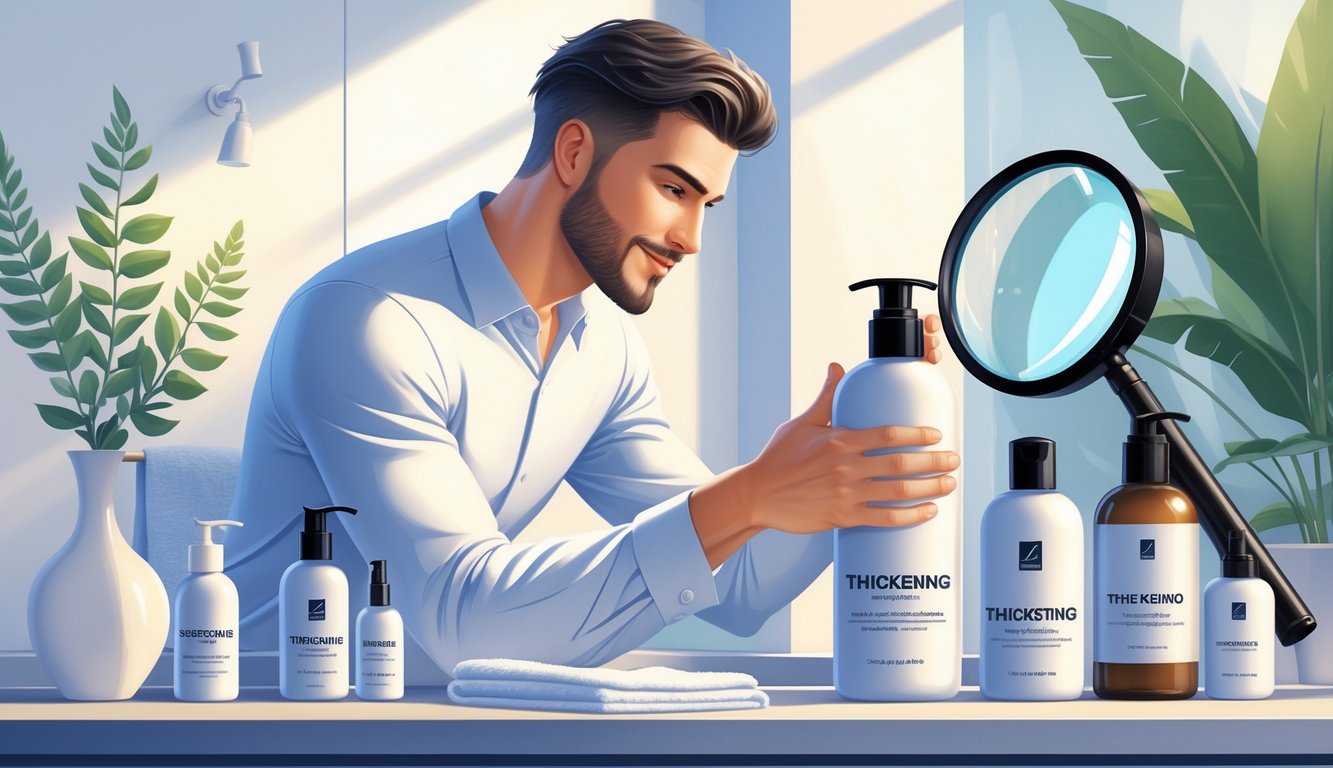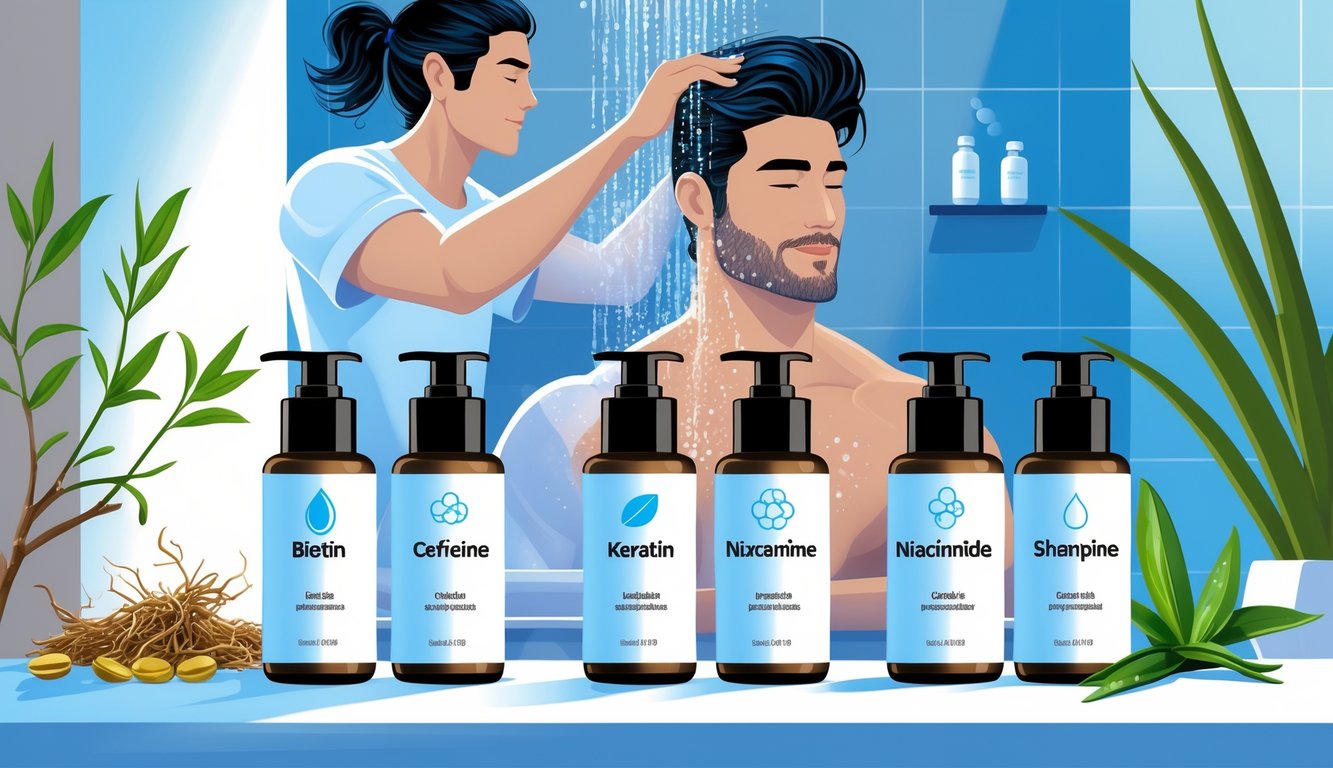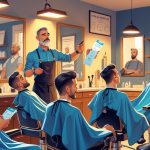
Dermatologists’ Advice on Choosing Thickening Shampoos
I swear, nobody warned me about the hair in the shower drain. Dermatologists are brutal about this—no sugarcoating, just “read the label and stop believing fairy tales.” I’ve spent hours reading their comments on forums and brand sites. It’s never about the latest trend. It’s about avoiding caffeine overload, not treating minoxidil like some magic potion, and realizing most “best shampoo” lists are just SEO spam.
What to Look For (and Avoid) in a Shampoo
Every dermatologist I’ve bugged—Dr. Fusco, some randoms at New York conferences—comes back to two things: what actually helps, and what quietly ruins your hair because some influencer said it was cool.
Sulfates? If your hair is thinning, just avoid them. Especially if you color or want to keep what’s left. Minoxidil (Rogaine) isn’t in shampoo anyway, but every “best shampoo” list brings it up like it’s shampoo’s cousin. It’s not.
Amino acids and peptides? Sure, sometimes. But mostly you’ll see biotin, caffeine, or pumpkin seed extract, and the evidence is all over the place. If you see fragrances or formaldehyde? Run. That’s like exfoliating with sandpaper. If your dermatologist wouldn’t use it, why would you?
Clinical Insights Into Effectiveness
Honestly, half these so-called “hair loss shampoos” are just thickening goop in a fancier bottle. Root re-animators? Come on, cartoons maybe. Dermatologists like Dr. Joyce Davis roll their eyes at the “regrowth” hype—she flat-out told me there’s no real evidence for that. Most of these shampoos just puff up the strands or fake some density, so you feel like your hair’s coming back. It isn’t.
I mean, sure, thickening polymers like hydrolyzed wheat protein or panthenol do make each strand feel a bit beefier. I read that in some journal, but let’s not kid ourselves—if you’re looking for actual follicle stimulation, you’re in the wrong aisle. These shampoos are basically supporting actors, not the lead.
Scalp care? Yeah, mild, pH-balanced stuff can help you shed less. Just don’t go rubbing sandpaper on your head. But the ads…they’re all “growth this, growth that.” Meanwhile, dermatologists—Dr. Camp said it last spring—are just trying to help you hang onto what you’ve got. Maintenance and prevention, not miracles.
Advice for Different Stages of Hair Loss
Caught myself staring at my hairline again. Dermatologists get all vague when you ask if “best shampoo for thinning hair” will actually stop the slide. Maybe if you’re just starting to thin, you’ll see some visual boost from a thickening shampoo. I keep hearing “adjunct, not answer.” That’s code for: don’t get your hopes up.
If you’re already seeing bald patches, any decent dermatologist will nudge you toward actual treatments—topicals, prescriptions, whatever. Shampoo’s just backup at that point. Dr. Fusco said it in a Zoom thing last year: “Don’t expect regrowth from shampoo alone once you’ve got serious miniaturization.” So, yeah.
If you’re like me and your hair’s always been thin (thanks, genetics), stick with a gentle, sulfate-free routine. Preserve what’s left. Think scalp health, not fairy tales. Oh, and rotating shampoos? Apparently, that helps avoid scalp fatigue, but no one talks about it unless you’re deep in the weeds with a derm.
Essential Ingredients to Look For

Ever flip a shampoo bottle and just give up halfway through the ingredient list? “Fuller hair” on the front, total gibberish on the back. I can’t even keep track of what’s biotin and what’s just some random “herbal” thing. Ignore the list and you’re basically burning cash, at least according to every dermatologist I’ve ever bugged.
Biotin, Niacinamide, and Vitamin E
Biotin. Oh man, this one’s everywhere. Marketers love it, but unless you’ve got a legit deficiency (which, NIH says, is like 1 in 140 guys), it’s probably not doing much. I get why it’s there—if you’re truly deficient, biotin’s a game-changer. For the rest of us? Meh.
Niacinamide’s sneaky. I see it in formulas for calming angry scalps. If you’ve got redness or irritation, it’s worth a shot. Dermatologists seem to like it for scalp barrier stuff. Vitamin E? Some folks say it’s an antioxidant miracle, but I’ve only noticed it helps keep my scalp less dry. Pair it with a gentle shampoo and, sure, your hair might look a little happier.
Caffeine and Green Tea
Caffeine in shampoo—my barber won’t shut up about it. There’s a lot of noise about “stimulating follicles,” but the evidence is all over the place. Some European derms say maybe it helps keep hair in the growth phase, but you’d need to stick with it for months just to maybe see a difference. My buddy swears it worked for him, but he also changed his diet, so who knows.
Green tea, especially that EGCG stuff, is all over the shelves now. Supposedly helps block DHT locally, which matters if you’re losing hair at the crown. But honestly, unless you’re basically bathing in the stuff, don’t expect miracles. Most “herbal” shampoos are watered down anyway.
Saw Palmetto, Ginseng, and DHT Blockers
Saw palmetto—everyone in men’s forums is obsessed. My dermatologist says it’s fine, but don’t expect much unless you’re using the oral version. Topical takes forever. Ginseng? Maybe helps with microcirculation (whatever that means), but again, slow results. Some brands mix these with zinc or pumpkin seed oil, chasing that “natural” label.
DHT blockers are the big guns for androgenic hair loss—finasteride pills or topical stuff. Shampoos toss in “blockers” like ketoconazole, caffeine, or green tea extracts, but honestly, you’ll need months of consistent use to even see if it’s working. Most guys quit before then. I probably would too.
Amino Acids, Keratin, and Wheat Protein
Protein in shampoo cracks me up. No, it won’t turn you into Superman. But amino acids like arginine or glutamine? Those might actually help with breakage. I saw a difference, but my cousin said the same shampoo just made his hair limp. Keratin gets hyped, but unless you’re actually treating your hair better (less heat, gentler combing), it’s just a surface fix.
Wheat protein—stylists rave about it, but it’s mostly for show. It sticks to the outside, makes your hair look thicker, but it washes out. If you’re shopping, check where the amino acids are on the ingredient list. If they’re buried under “fragrance,” don’t expect much.
Random story: I bought a shampoo bragging about “eight essential proteins.” They were all listed after perfume. That’s a red flag. Brands love science-y words, but my stubborn cowlick doesn’t care.
Understanding Hair Types and Shampoo Selection
One “best” thickening shampoo for men? Yeah, right. Hair’s a mess—texture, scalp weirdness, random breakage, and labels that are basically fiction. If you pick the wrong shampoo for your hair type, you’re just spinning your wheels. And if you’ve got color or curls? Good luck.
Identifying Your Hair Type
Anyone else totally lost with “fine,” “medium,” “coarse”? Trick I learned: pinch a strand. If you can feel it, it’s coarse. If not, probably fine. The American Academy of Dermatology swears by this. Knowing your type saves you from buying overpriced junk with the wrong surfactants (yeah, that’s just a fancy word for cleaning agents).
Most guys just grab whatever says “biotin” or “caffeine.” If your scalp’s oily or flakes, you’ll just end up with itch AND disappointment. Who actually reads for “strengthening polymers” or “keratin complexes”? Almost no one. That’s how you clog up follicles and make thinning worse. Sebum? Total wild card.
Tailoring Choices for Color-Treated Hair
Color-treated hair is a minefield. Cheap thickening shampoos with sulfates or harsh alcohols? They’ll just nuke your color and leave you with straw. I keep crawling back to sulfate-free stuff, but not all “gentle” surfactants are equal. If your hair’s blue? Don’t trust anything that says “clarity.” You’ll be rinsing dye down the drain by Wednesday.
Colorists and trichologists (yeah, I asked one) always push mild cleansers like cocamidopropyl betaine, plus panthenol or glycerin for hydration. pH-balancing claims actually matter—a flat cuticle keeps dye in. And thickening actives? No magic after one wash. You need something for frequent use, not a last-minute fix.
Unique Needs of Curly, Fine, and Straight Hair
Curly-haired guys, I feel for you. Most “volumizing” shampoos just mean “frizz city” unless they’re loaded with emollients or oils. Straight hair? You can get away with lighter stuff, maybe some silicone or tea tree oil. Rosemary extract is everywhere, but it’s more for scalp than curls. Fine hair? Heavy formulas will just flatten you out. Don’t pretend you haven’t seen limp hair by lunchtime.
Curly hair leaks moisture like crazy, so thickening shouldn’t mean stripping. Straight hair needs lift, but too much protein and you’ll end up crunchy. Stylists can’t even agree—some say use a pea-sized blob, others go nuts. Product buildup is real. Men’s Health listed ginseng and mint, but honestly, results are all over the place. You can’t outsmart your genes, but smarter shampoo choices might help, a little.



